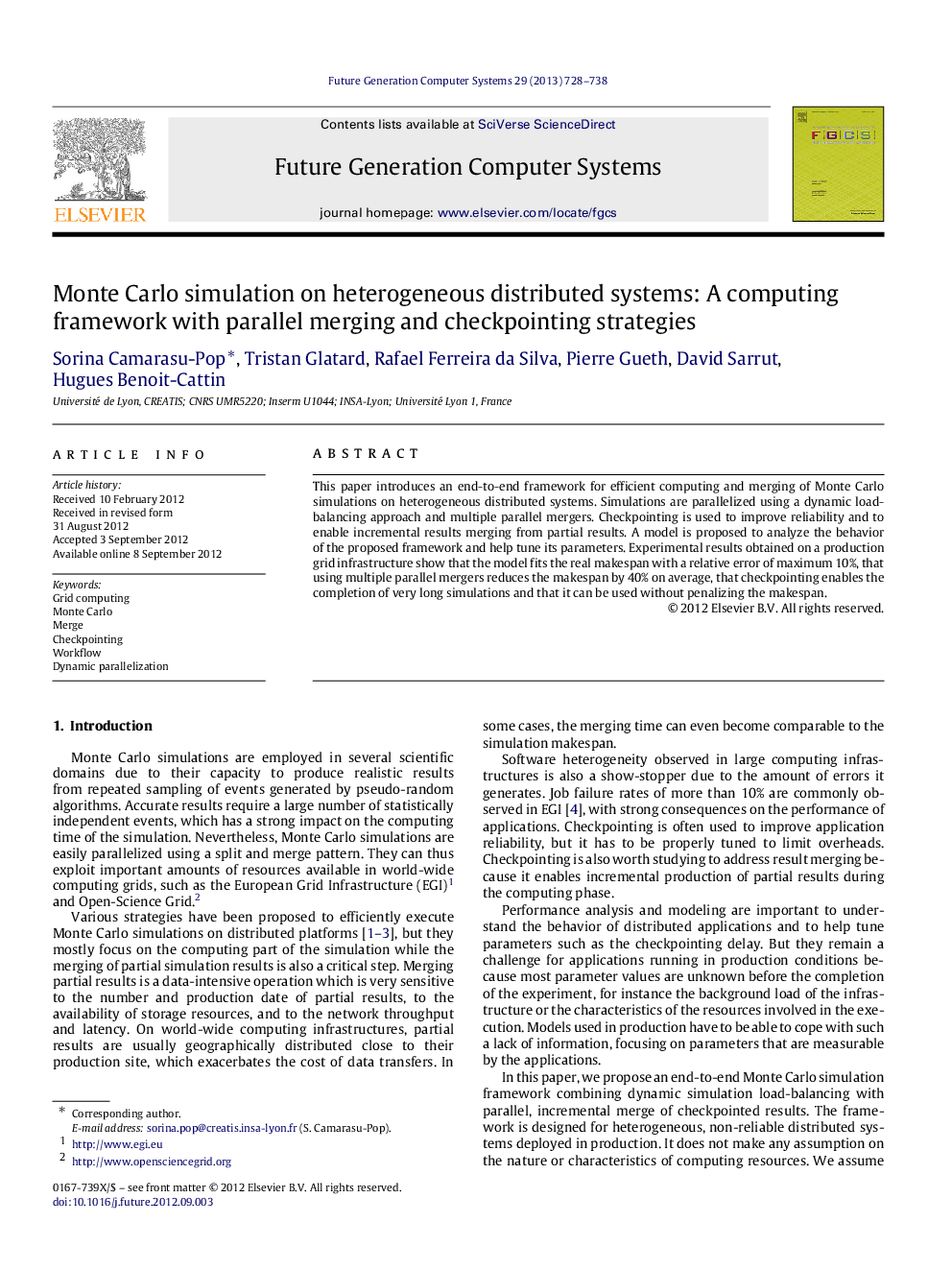| Article ID | Journal | Published Year | Pages | File Type |
|---|---|---|---|---|
| 425103 | Future Generation Computer Systems | 2013 | 11 Pages |
This paper introduces an end-to-end framework for efficient computing and merging of Monte Carlo simulations on heterogeneous distributed systems. Simulations are parallelized using a dynamic load-balancing approach and multiple parallel mergers. Checkpointing is used to improve reliability and to enable incremental results merging from partial results. A model is proposed to analyze the behavior of the proposed framework and help tune its parameters. Experimental results obtained on a production grid infrastructure show that the model fits the real makespan with a relative error of maximum 10%, that using multiple parallel mergers reduces the makespan by 40% on average, that checkpointing enables the completion of very long simulations and that it can be used without penalizing the makespan.
► We propose a new framework for Monte Carlo simulations on heterogeneous DCIs. ► We propose a map-reduce approach with multiple parallel reducers and checkpointing. ► On average merging time is reduced with 40% when using multiple parallel mergers. ► We propose a model to explain the measures made in production. ► Experimental results fit the model with a relative error of less than 10%.
